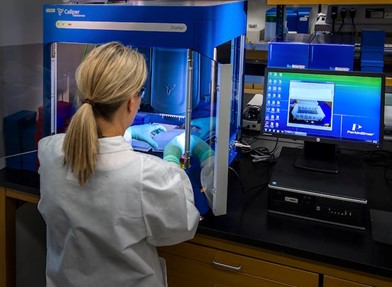The rise of artificial intelligence (AI) has been nothing short of transformative explains John R. Callen of MedRehab Alliance.
It redefines multifunctionality. Around thew world and across sectors, from business and politics to the military, powerful AI analyzes data with record speed to inform decisionmakers from all walks of life.
Machine learning and other AI forms help businesses become more profitable and scientific research speedier and more effective.
It has helped make driving safer and can help financial institutions quickly detect fraud. Within the American military, AI can be used to mine through vital data gathered by surveillance and inform missions.
AI has perhaps some of the most promising applications within healthcare; it has the power to fundamentally change how people are given care and how we identify and prevent conditions for decades to come.
With AI, the healthcare system as we know it is rapidly changing for the better.
The AI Revolution
Just five years ago, many people hadn’t heard of AI — and that includes doctors and researchers within healthcare.
Today, some form of AI is used by the majority of healthcare institutions, from hospitals and research labs to higher institutions training the next generation of healthcare workers.
Consider this: In 2021, the value of the global AI healthcare marketplace was $10.4 billion, up from $2.4 billion in 2019. Estimates place the value of the market at over $31 billion by 2025.
AI overall has seen arguably the most growth in investment and application within healthcare. It is leading a powerful change in the industry.
This can be seen in the parallel rise of predictive care that can only be accomplished seamlessly and effectively with AI.
By 2030, AI is predicted to guide healthcare systems in such a way that predicts when patients will develop certain conditions, including major diseases, and even offer effective treatments early before some diseases become serious.
This predictive power has been seen in the ways AI has helped shed new light on everything from congestive heart failure to diabetes and breast cancer. By uncovering so-called social determinants of health, some diseases are in decline worldwide, according to the World Health Organization.

Growing Number of Applications
AI doesn’t just have the power to predict certain diseases and organize data. It’s growth within healthcare has been seen in innumerable ways, including:
Improved Patient Experience
Analytic programs can dictate when doctors should remind patients about taking medications, checking their blood pressure, and when they are due for new appointments. Platforms powered by AI could improve the way patients and healthcare groups communicate, especially through live chats.
Sharper Diagnosis
Through AI, doctors can better analyze such medical tools as MRIs and X-rays, leading to better identification of diseases and more effective treatment plans. Algorithms powered by AI are already detecting cancer signs in mammograms with top accuracy.
More Personalized Care
At the University of Pennsylvania, doctors have used AI to pinpoint specific health risks within different populations, especially the elderly and people of color. These doctors have found that such AI technology may predict sepsis a full 12 hours before patients display symptoms.



